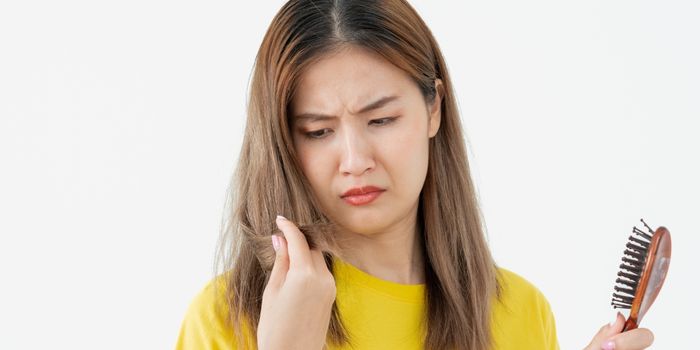
Female hair loss is a common yet often misunderstood condition that affects millions of women worldwide. Despite its prevalence, the stigma and misconceptions surrounding female hair loss can lead to unnecessary stress and confusion. Understanding the various causes—ranging from genetic factors and hormonal changes to lifestyle and medical conditions—is crucial for addressing this issue effectively. This blog aims to shed light on the complexities of female hair loss and explore a range of solutions, empowering women to make informed decisions about their hair health.

Early signs of female hair loss: How to spot and treat them
Recognizing the early signs of hair loss in women is crucial for fast and effective treatment. Symptoms such as increased hair loss, thinning hair and receding hairline can be subtle but important indicators of an underlying problem. Paying attention to these early signs allows for timely intervention that can slow or even reverse the progression of hair loss. Treatments range from topical solutions and medications to lifestyle changes and dietary adjustments, each tailored to address specific causes. By detecting early signs and seeking appropriate treatment, women can take proactive steps to protect their hair health and confidence. If you are suffering from hair loss, contact Dr. Sezgin to schedule a free consultation.
Emotional impact of female hair loss: Coping strategies
The emotional impact of female hair loss can be profound, affecting self-esteem, confidence, and overall mental well-being. Women experiencing hair loss often feel a sense of loss, frustration, and social anxiety, which can lead to depression and withdrawal from social activities. Coping strategies are essential for managing these emotional challenges. Seeking support from friends, family, or support groups can provide comfort and understanding. Professional counseling or therapy can also be beneficial in addressing the psychological aspects of hair loss. Additionally, exploring hair restoration options or scalp treatments, can help women regain a sense of normalcy and confidence. By acknowledging the emotional toll and actively seeking support and solutions, women can better navigate the journey of coping with hair loss.

Female hair loss: When to seek professional help
While occasional hair loss is normal, persistent or severe hair loss in women may indicate the need for professional help. If you notice significant thinning of your hair, bald patches or a rapid increase in hair loss, it is very important to consult a doctor. An expert doctor in the field can perform a thorough evaluation to determine the underlying cause, such as hormonal imbalances, nutritional deficiencies or thyroid disorders or alopecia. Early intervention by a professional can lead to more effective treatment outcomes by preventing further hair loss and promoting regrowth. Don’t wait for the problem to get worse; seeking timely professional advice can make a significant difference in the management and treatment of female hair loss.
Female hair loss: Medical treatments and innovations
Significant advances have been made in the field of medical treatments for female hair loss, offering hope to those affected. Traditional options such as topical minoxidil and oral medications such as finasteride have proven effective for many women, helping to slow hair loss and promote regrowth. Recent innovations include low-level laser therapy (LLLT) devices that stimulate hair follicles using light energy, and platelet-rich plasma (PRP) therapy, which involves injecting concentrated platelets to stimulate hair growth. In addition, hair transplant surgery has evolved to provide natural-looking results with minimally invasive techniques. As research continues to uncover new treatments and technologies, women have an increasing range of options to combat hair loss, making it easier to find a solution tailored to their specific needs. If you are suffering from hair loss, Dr. Sezgin is the address you are looking for.
You may also like this: Is Hair Transplant Right for You?








